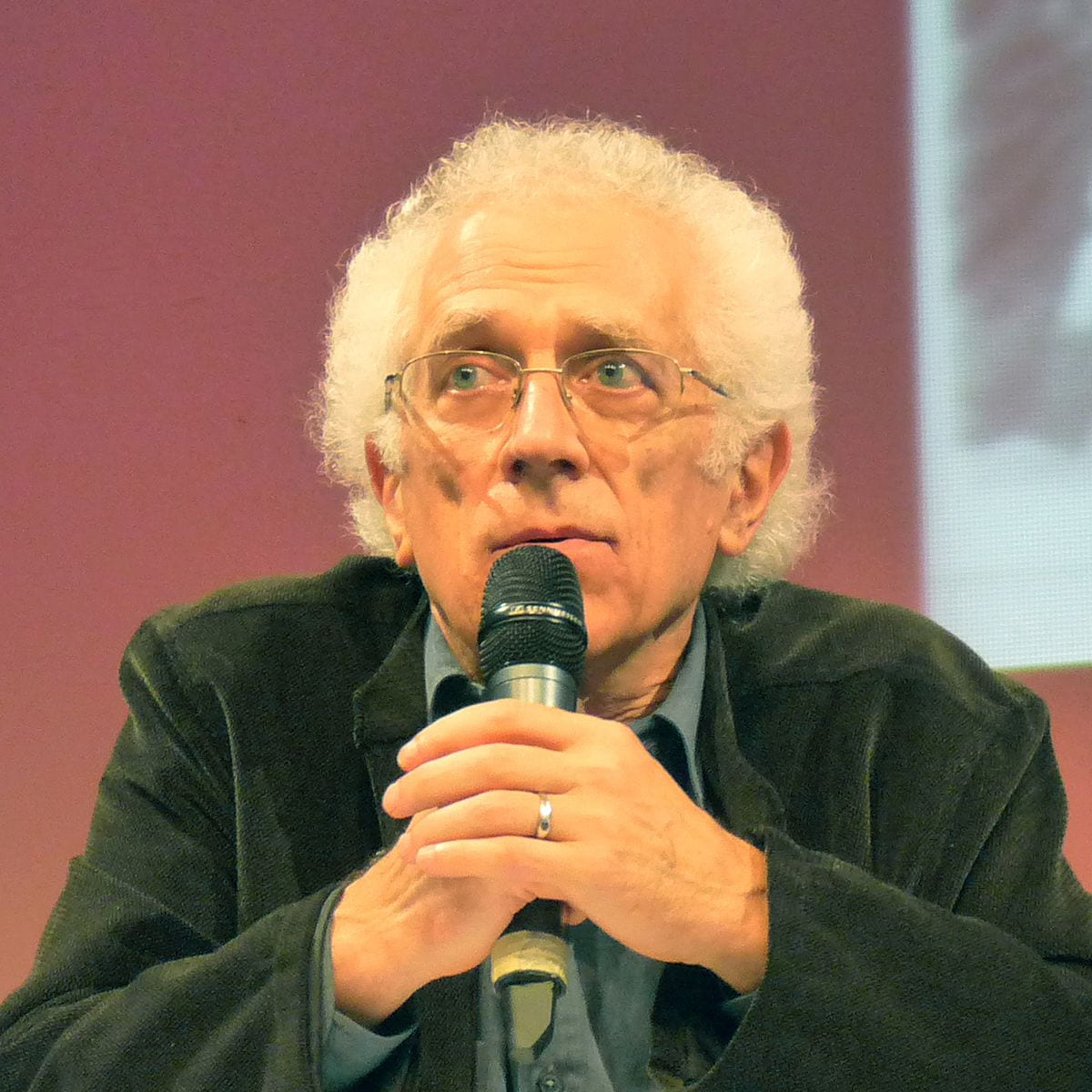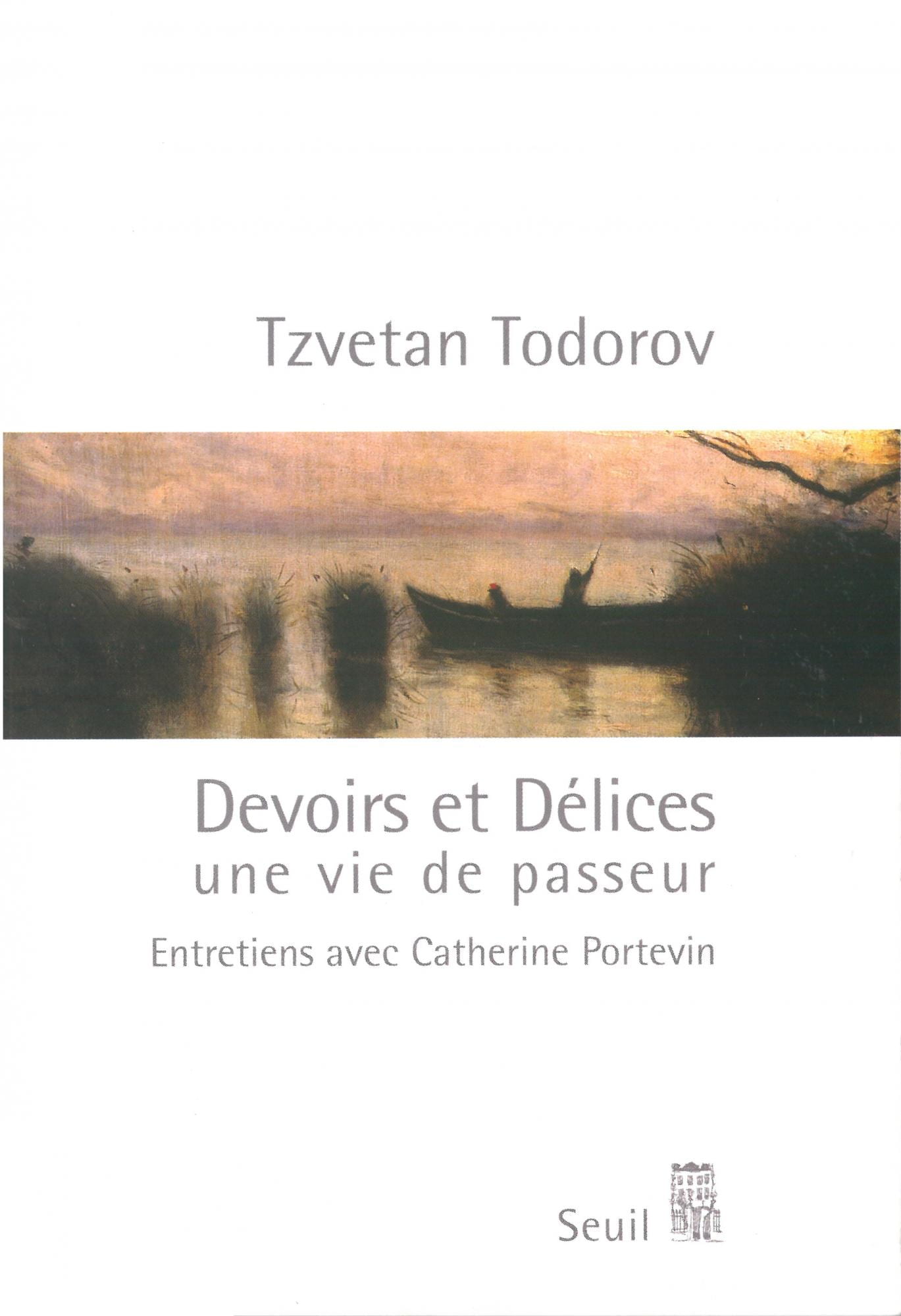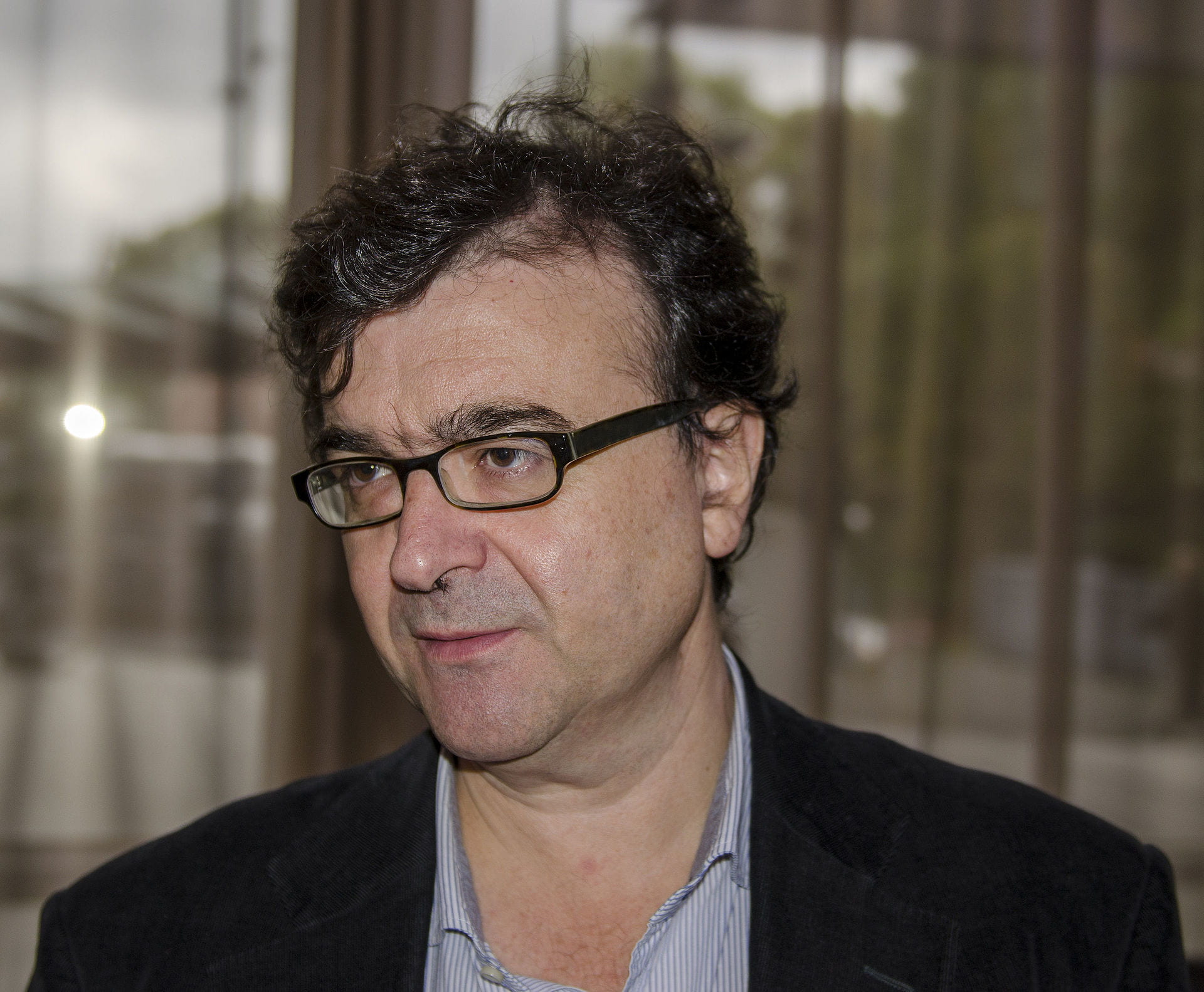By guest contributor Richard J. Golsan
 Early one morning last February, I received a text from a friend in Paris telling me that Tzvetan Todorov had died. The text concluded with the word “Désolée,” which captures so well feelings of regret and sorrow, and also empathy. My friend knew that I had known Tzvetan for twenty-five years, that I admired him tremendously, and that from an intellectual mentor Tzvetan had become a close friend, whom I looked forward to seeing every time I went to Paris. Although I had known that Tzvetan suffered from Parkinson’s disease, and I had been shocked by his condition when I last visited him last September, I never really imagined that he would die, and so soon.
Early one morning last February, I received a text from a friend in Paris telling me that Tzvetan Todorov had died. The text concluded with the word “Désolée,” which captures so well feelings of regret and sorrow, and also empathy. My friend knew that I had known Tzvetan for twenty-five years, that I admired him tremendously, and that from an intellectual mentor Tzvetan had become a close friend, whom I looked forward to seeing every time I went to Paris. Although I had known that Tzvetan suffered from Parkinson’s disease, and I had been shocked by his condition when I last visited him last September, I never really imagined that he would die, and so soon.

Devoirs et délices (photo credit: Seuil)
I first met Tzvetan when he came to Texas and stayed in my house for three days while he lectured and gave a seminar for the Interdisciplinary Group for Literary Historical Study at Texas A&M University. Unlike so many other visiting scholars of his stature who fly in, give their lecture, dine with faculty, stay at a nice hotel, and fly out the next morning, Tzvetan wanted to get to know the people he visited, and not just the academics. At my house, where he wished to stay even though we only knew each other through correspondence, he spent as much time talking to my wife and two sons as he did to me. Later, in his autobiography, Devoir et délices he would speak about how the birth of his first child changed his life as well as the trajectory of his intellectual interests, and it became clear to me then why he wished to spend time with my entire little family. For many years Tzvetan was married to the novelist Nancy Huston, with whom he had two children. In conversations he would refer to “my Nancy” and “your Nancy” when talk to turned to family and daily life at home. As so many of his works confirm, for Tzvetan, “life in common” with family and friends was the cornerstone of a rich and happy life as a public intellectual who was respected and admired around the world. In the first years I knew him I visited Tzvetan in his study in his apartment near the Bastille. His daughter Léa and especially his son Sacha were very frequently around, and his tenderness for them and attentiveness to their needs was always evident. Later when he had moved over to the Left Bank and we would take long walks in the Jardin des Plantes or chat in a café near his apartment, he would speak fondly and proudly of his children, now grown. His daughter Léa had become a documentary film maker, and at our memorial conference for him at Reid Hall in Paris this past July, she showed parts of a documentary she was making on Tzvetan during his last visit to his native Bulgaria. Unfortunately he died before the film could be completed.
In our many conversations we ran the gamut of family, politics, books we had read and admired, travels, and many other subjects. He was generous with me in every way—he offered advice on my life and career, told me of important events or debates in Paris, often before they happened. For example, involved early on as an advisor in the Livre noir du Communisme project—which was very close to his heart, given his youth in Communist Bulgaria—Tzvetan told me months before it appeared about the controversy it would generate, and what his own views were.
Tzvetan frequently expressed admiration for friends and intellectuals he admired, and was always circumspect about those whose ideas or views he disliked or found dangerous (in Devoirs et delices, he is open about his dislike of Jacques Lacan and André Glucksmann). Always seeking to live the role of the “responsible intellectual” rather than the “engaged intellectual” of which he was suspicious, he was cautious about the positions he took in the public arena. He wanted to make sure that they measured up to his high standards of being truly thoughtful and reasonable. He was, he told me, discouraged by the often shrill intellectual polemics in the French media. After he published Le nouveau désordre mondial, which obliged him to become involved in these polemics, he said he was done with plunging directly into heated controversies of the moment. He would later, of course, change his mind in the face of new situations and what he perceived as new dangers.
One of Tzvetan’s many qualities was his ability to sum things up with just the right phrase or observation, which he pronounced with a kind of sympathetic detachment. Once when I was overly dramatic in my estimation of the meaning and impact of Jean-Marie Le Pen’s first-round victory in the presidential elections in 2002, Tzvetan stated simply: “Joe, the world is not getting to be a better place.” The phrase, bracing in its simplicity, punctured my apocalyptic pronouncements on the spot. Near the end of his life, he told me that he did not despair of disturbing or even devastating global events and developments, because he did not believe in grand or overarching historical narratives that supposedly gave meaning to these developments while placing them in an imaginary and fictitious “grand scheme” of things. He believed that these crises or disasters had to be dealt with one at a time and on their own merits.
Tzvetan’s ability to capture things in their essence and their profundity was also apparent in more personal things he said to me. In summer 2012, he invited to me to lunch, a break with our habit of walks in the park or café stops. After a long and pleasant lunch in an Indian restaurant near Jussieu, he confided in me that he was worried that he had Alzeimer’s disease. As we left, for the first time he hugged me and said: “You have to promise to come see me next time you are in Paris, even if I don’t remember who you are.”

Javier Cercas (photo credit: Albin Olsson)
Looking back on our encounters in the last years of Tzvetan’s life, it was clear to me that his life was becoming increasingly difficult, and painful. His marriage of many years ended abruptly, and what he feared was Alzheimer’s disease turned out to Parkinson’s disease. From the wiry, fit man I had known he became thinner and moved with increasing difficulty. But there were things that he very much enjoyed. He had received an award in Spain, and as a result spent a few days with the tennis champion Rafael Nadal, who had also received an award and whom he found delightful. He began watching Nadal’s matches on TV when he could. He also told me of his meeting with the Spanish novelist Javier Cercas, author of Soldiers of Salamis, many of whose ideas he shared and whose company he enjoyed. His admiration for figures like his friend the ethnologist, Resistance fighter, and Nazi camp survivor Germaine Tillion, never waned, and he wrote a lovely essay about her in May 2015, when her remains were placed in the Panthéon, alongside other luminaries of France’s Republican past. Tzvetan also still found pleasure and comfort in his work, writing and completing his final book, Le triomphe de l’artiste, shortly before he lost the ability to type.
I last saw Tzvetan in September 2016, when we spent two evenings together recording an interview that covered his entire life and work. There were so many things I did not know about him, despite years of friendship, and this made the visit all the more moving. When he had come back to Paris the month before, after spending the summer with friends in the country while completing his last book, his condition had worsened dramatically. He could no longer leave his apartment, and had difficulty walking about. While the interview went on, friends called repeatedly to ask after him. His daughter Léa hovered discreetly about, and this appeared to please him a great deal.
At the end of the interview we said goodbye at the door. As I left the building I was frightened for Tzvetan, and yet it did not occur to me that I would not see him again. Now that Tzvetan is gone, however, in looking at his books on my shelves, and thinking back to Léa Todorov’s brief film of him in Bulgaria, I remember the man and his ideas. Despite the sadness of his demise, he lived the life that he wished for, and lived it better than most. His legacy, and the memory of his friendship remain, and that is some comfort.
Richard J. Golsan is Distinguished Professor of French and University Distinguished Professor at Texas A&M University. His most recent monograph is The Vichy Past in France Today: Corruptions of Memory (Lexington/Rowman & Littlefield, 2017). He also recently edited a collection of essays with Sarah M. Misemer, The Trial that Never Ends: Hannah Arendt’s “Eichmann in Jerusalem” in Retrospect (University of Toronto, 2017). Last summer, he went under the FHN spotlight. The interviews with Tzvetan Todorov mentioned above are forthcoming in South Central Review.



Leave a Reply